每日观察:关注亚洲手机应用市场份额等消息(1.24)
1)Distimo最新报告显示,亚洲已经占据41%的全球应用市场份额,北美占比31%,欧洲占比23%。
在2012年12月至2013年12月期间,亚洲iOS和Android销售额增长了162%。值得注意的是,Android是亚洲头号操作系统,其iOS vs Android收益比例却是50:50,而美国和欧洲的这一比例则是75:25。
苹果2013年期间在亚洲的iPhone收益增长94%,iPad收益增长64%,Google Play在亚洲收益虽然起点低,但却增长超过4倍(游戏邦注:这里的Google Play总收益并不包含中国市场收益,因为谷歌并没有向中国推出这个官方服务)。
2)据gamasutra报道,Capcom最近公布了未来的电子游戏开发计划,表示未来5年每年将至少招聘100名软件开发者。
值得注意的是,该公司旗下主机游戏《Monster Hunter 4》大获成功,但手机游戏业务却并不如预期理想。
3)SuperData Research最新数据显示,2013年12月份手机游戏开发者获取新用户的每安装成本(CPI)达到了4.36美元,比2012年1月份增长了288%(当时的CPI仅为1.3美元),也超过了2012年12月份时的水平(2.23美元)。2013年12月份的CPI比该年平均每月成本多3倍。
尽管成本上升了288%,但该时期每用户平均创造收益(ARPU)却仅增长了38%。2012年1月份ARPU增长了78%,但目前这一数值仅为1.08美元。这意味着开发者投入产出不成正比。
4)据Venturebeat报道,继King公司注册商标的消息令《The Banner Saga》等游戏面临商标侵权风波之后,独立工作室Stolen Goose日前声称King游戏数年前剽窃了自己的游戏。
该工作室于2009年在MaxGames.com发布了Flash游戏《Scamperghost》,玩家在游戏中要移动一个一边躲避幽灵,一边吃硬币的蓝色小人;不久之后King也在自己的Royalgames.com发布了一款类似的游戏《Pac-Avoid》,这两者的玩法机制几乎一模一样。
《Scamperghost》工作室代表日前指出King明显抄袭了自己的游戏,并认为King是有意而为之。该游戏设计师Matthew Cox在博客中表示,他们之前同King.com成员Lars Jörnow谈过这款游戏的授权合作事宜,但并未签署任何协议,之后MaxGames.com提供了更好的出价,所以他们就辞谢了King.com并结束了这次接触。
但King后来支付3000美元雇佣Matt Porter及其开发合作伙伴为其制作了这款克隆游戏。
King注册了“Candy”和“Saga”商标以便清除iOS和Google Play中的相关山寨游戏,但在Cox和Porter看来,King本身在此领域也并不清白。(本文为游戏邦/gamerboom.com编译,拒绝任何不保留版权的转载,如需转载请联系:游戏邦)
1)The Asian app market grew 162% in 2013, accounting for 41% of global sales
by Jon Jordan
The Asia app ecosystem is a freight train that can’t be stopped.
That’s the conclusion of the latest piece of market intelligence from Distimo.
It’s been working with Chinese Android distribution channel Wandoujia to dig into the velocity of the Chinese market; something it’s combined with insights into the Korean and Japanese markets.
Its headline figure is that Asia now represents 41 percent of the global market, compared to 31 percent for North America and 23 percent for Europe.
Fastest, biggest
There are many reasons for this rise.
The Korean and Japanese markets have closely mirrored the western transition from feature phone to smartphones and are highly lucrative thanks to their wealthy populations, which have always been phone-centric.
The rest of Asia is poorer and has been slower to get smartphones but its sheer scale will power the region to further triple-digit growth during 2014.
Combined sales for iOS and Android in Asia grew 162 percent from December 2012 to December 2013 according to Distimo.
Of course, Android is the main winner in the region when it comes to the OS wars. In Asia, the revenue split between iOS and Android is 50:50 compared to 75:25 in iOS’ favour in the US and Europe.
Time to play
And it’s Android that’s driven the rise.
Apple has done well with iPhone revenues up 94 percent and iPad revenues up 64 percent in Asia during 2013, but starting from a lower base, Google Play revenues in Asia more than quadrupled.
(And remember the Google Play total doesn’t include China, where the majority of Android revenue is through local channels, not Google’s official app store).
The power of the OS in the region can also be seen in the following graph, which breaks out the proportional of Google Play and iOS revenue in the top 6 Asian markets.(source:pocketgamer)
2)Capcom details its business plans for the next five years
By Mike Rose
Newsbrief: As part of a comphensive review of its video game development plans, Capcom says that it will aim to hire at least 100 software developers each year for the foreseeable future.
While the company has seen great success with Monster Hunter 4, its game business has been flat for some time — in particular, Capcom’s mobile games aren’t doing as well as expected.
As a result, Capcom management released a pair of open letters today that spell out a new five-year plan for the company, including taking on hundreds of developers over the next several years.(source:gamasutra)
3)Player-acquisition costs rise on mobile even as revenues-per-gamer holds steady
Jeffrey Grubb
Mobile developers are spending more than ever to acquire new gamers, but those new players aren’t spending any more cash on their games.
It cost mobile publishers more than ever to acquire new customers in December. The cost for a new install (CPI) hit $4.36 last month, according to market analysis firm SuperData Research.
That’s up more than 288 percent from January 2012 (the month SuperData started tracking this information), when CPI was only $1.30. For a more direct comparison, in December CPI was $2.23.
December’s costs were also three times higher than the monthly average for 2013.
The price increase to get a new person playing a game did not equal a larger return on investment. While costs are up 288 percent, the average revenue that each user generates for a game (ARPU) is only up 38 percent in the same timeframe. ARPU was 78 cents in January 2012, and it’s only up to a $1.08 now.
That means developers are spending a lot more for just a little bit more in return.
“Initially, mobile game companies — like social publishers before them — could get by on organic growth alone,” SuperData analyst Joost van Dreunen told GamesBeat. “Now that the market has started to mature, marketing plays an increasingly important role. For the top dogs, this means finding new and clever ways to promote their games, like the cross-promotion efforts we’ve seen between Clash of Clans and Puzzle & Dragons.”(source:venturebeat)
4)Candy Crush Saga publisher allegedly contracted a developer to explicitly copy another studio’s game in 2009
Jeffrey Grubb
While King is throwing around its legal might to go after games like The Banner Saga, an indie studio is claiming that the Candy Crush Saga publisher ripped off its game a few years ago.
In 2009, indie developer Stolen Goose released a Flash title called Scamperghost on MaxGames.com. It has players moving around a little blue guy who wants to eat coins while avoiding ghosts. He can spend his coins to slow down time, and he can kill the ghosts if he eats a power pill. Players rack up more points the longer they avoid the enemies.
Not long after Scamperghost debuted, King released Pac-Avoid on its Royalgames.com. It has players moving around a little blue guy who wants to eat coins while avoiding ghosts. He can spend his coins to slow down time, and he can kill the ghosts if he eats a power pill. Players rack up more points the longer they avoid the enemies.
Don’t worry. Your brain didn’t just skip. The descriptions of both games are identical because they are basically the same game.
One of the developers responsible for Scamperghost came forward today to explain that King apparently copied their title, and the developer responsible for the clone has told GamesBeat that the maker of Candy Crush Saga did it on purpose.
“We were in talks with Lars Jörnow at King.com to license our Scamperghost game,” Matthew Cox, the game’s designer, wrote on his blog. “Before the deal was closed — and certainly before any contracts were signed — MaxGames.com made a better offer, so we thanked King for considering our game and politely ended our negotiations.”
King felt burned by this, according to Matt Porter of Epic Shadow Entertainment, which is the now-defunct Flash developer King hired to make an exact clone of Scamperghost.
“Lars from King had us do a contract job for him when me and my old game-development partner were literally living in a basement by ourselves,” Porter told GamesBeat. “Lars paid us $3,000 to essentially clone Scamperghost and try to beat it to release.”
Porter says that Jörnow felt screwed out of the potential deal that he wanted to make with Stolen Goose. We’ve reached out to King to ask it to comment on these claims, but it has not returned our requests.
In an email that he sent to Cox following the release of the clone, Porter explained that he felt justified copying Scamperghost at first because Jörnow made it seem like Stolen Goose backed out of a signed contract.
Cox claims that he never signed a contract with King and simply went with MaxGames because it offered better terms. Porter no longer believes that Stolen Goose breached a contract, although he thinks neither the Scamperghost developers nor King are blameless.
“I believe that Stolen Goose probably did something that wasn’t perfectly ethical, but I don’t think that is validation for what King had us do — which was clone the game,” said Porter.
Epic Shadow came to that realization during development, it felt embarrassed about making a copycat product.
“That was why we specifically left our branding out of the game,” said Porter.
These types of tactics aren’t unheard of within the Flash-based web-gaming market, but, if these accusations are true, they would make a company like King look hypocritical. The company is attempting to protect its unregistered trademarks for “Candy” and “Saga” by trying to block smaller studios’ from using those words in their products’ names. King claims it wants to keep copycats out of the iOS and Google Play marketplaces, but, according to Cox and Porter, the social-gaming publisher isn’t above copying others.(source:venturebeat)

























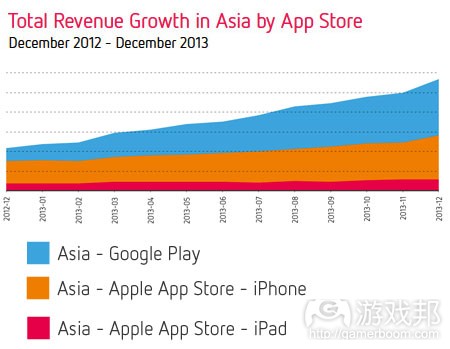
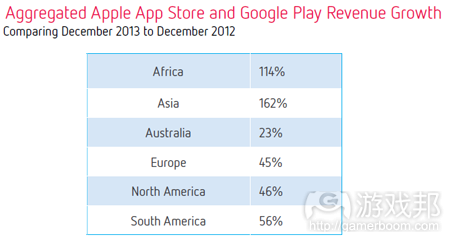
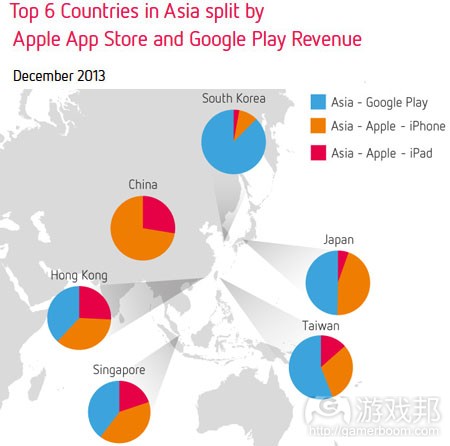
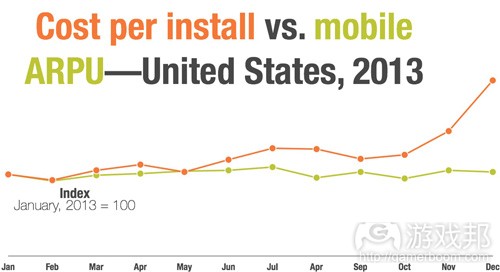
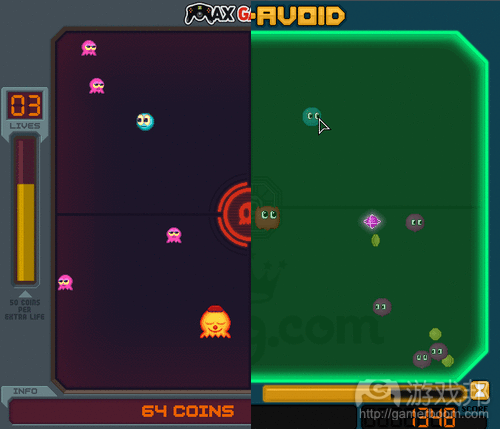














 闽公网安备35020302001549号
闽公网安备35020302001549号